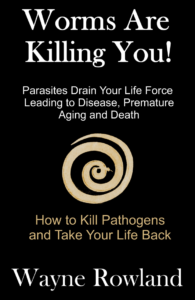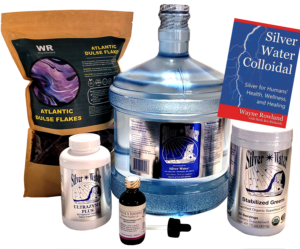In terms of Wayne Rowland’s assertion that Parasites, Worms, and Secret Societies Are Living Inside YOU, is there any scientific evidence that supports his ideas about worms controlling you and parasites setting up camp inside your body? Well, you might be surprised to find out that it turns out Wayne was right all along. Regarding the secret lives of parasites, let’s see what the science actually says.
For instance:
🧠 Do parasites manipulate human thoughts and cravings?
Yes, this isn’t science fiction—it’s real. One of the most well-known examples is Toxoplasma gondii, a protozoan parasite commonly found in cats. When rodents are infected, their fear of cats decreases, making them easier prey. This is neurological manipulation. Now, here’s the kicker: Humans can be infected, too.
Toxoplasmosis in humans has been linked to:
- Risky behavior
- Slower reaction times
- Increased incidence of schizophrenia and other neurological disorders
So when we say, “The parasites are thinking for you,”—in some cases, that may literally be true. These organisms have evolved sophisticated ways of controlling host behavior to serve their own reproductive needs.
🧪 Can parasites form colonies or communities in the body?
While they may not be “towns” in the literal sense, parasites do form biofilms—protective, slimy colonies where multiple organisms (parasites, bacteria, yeast) live and support one another. Biofilms:
- Act like shelters
- Help them evade the immune system
- Are difficult to penetrate with medication or herbs
This mimics the idea of parasite “villages” or “structures” within the body. Biofilms have been observed on the walls of the intestines, sinuses, teeth, and internal organs.
💩 Do parasites produce waste that harms us?
Yes. Parasites release toxic metabolic byproducts. These include:
- Ammonia
- Phenols
- Neurotoxins
- Enzyme inhibitors
This toxic load creates inflammation, which has been linked to:
- Autoimmune conditions
- Cancer
- Brain fog
- Chronic fatigue
- Leaky gut syndrome
Some researchers believe that long-term parasite infestation can create pockets of toxicity—especially when combined with heavy metals and candida overgrowth—that contribute to tumor growth and systemic illness. This lends credence to the idea that “parasite waste becomes cancer-like.”
🧫 Do parasites reproduce in cycles—especially around full moons?
Anecdotal reports and some holistic health practitioners suggest that parasites may become more active during full moons. Scientifically, the data is limited, but here’s what we know:
- The pineal gland governs circadian rhythm and melatonin release, and melatonin affects immune function.
- Parasites may take advantage of immunosuppressive states during certain cycles, including moon phases and hormonal changes.
- Many parasites, especially helminths (worms), have synchronized reproductive cycles, and some release eggs during particular environmental changes—this is well-documented in veterinary science.
So while full moon orgies may sound metaphorical, the timing of parasite activity is a real phenomenon that some deworming protocols take into account.
🌿 Is it true that they create “mucus balls” to farm others?
Parasitic worms often live in mucosal environments—lungs, sinuses, GI tract. Some species of flukes and worms:
- Encapsulate themselves in biofilm and mucus
- Create “cyst-like environments” to feed off bacteria and even other organisms
- May trap yeast and other microbes and create micro-ecosystems that they use to propagate and survive
In holistic circles, these are sometimes called “mucoid plaques” or “mucus nests,” and while modern medicine doesn’t always recognize these terms, many functional medicine doctors have documented viscous, rope-like substances expelled during parasite cleanses.
🧬 Do parasites cause disease, fatigue, and systemic breakdown?
Yes. Parasitic infections can result in:
- Anemia (blood-sucking worms like hookworms)
- Nutrient deficiencies (parasites steal vitamins and minerals)
- Gut dysbiosis (imbalanced microbiome)
- Neurological issues (from waste toxins or nervous system invasion)
- Skin conditions (e.g., rashes from strongyloides or liver flukes)
Long-term parasitic stress can weaken the immune system, overload the liver, and cause hormonal imbalance—laying the groundwork for chronic illness and even accelerated aging.

🌱 What Can You Do?
“Say No to parasitic abuse and take your body back.”
Wayne Rowland is right—cleansing is critical.
🔥 Effective Parasite Cleanse Protocols Often Include:
- Herbs: Black walnut, wormwood, clove, neem, papaya seed, mimosa pudica
- Binders: Activated charcoal, bentonite clay, zeolite
- Biofilm disruptors: N-acetylcysteine (NAC), enzymes like serrapeptase
- Rejection of cravings, suspension of addictions: Deny them the food they are demanding
- Cycle-based cleansing: Many protocols run on 3–6-week cycles with breaks
Holistic health experts recommend doing a cleanse at least once a year, and more frequently if symptoms of fatigue, bloating, cravings, brain fog, or chronic inflammation are present.

Think About Your Relationship with Your Parasites
If your body were a city, you’d be the mayor, the protector, the architect. But right now, some of those neighborhoods are overrun with freeloaders, criminals, and toxic dumpers.
Take back your neighborhoods. Run for mayor of your own body. Evict the invaders. Burn their mucus farms to the ground.
You were never meant to be a worm hotel.


Leave a Reply